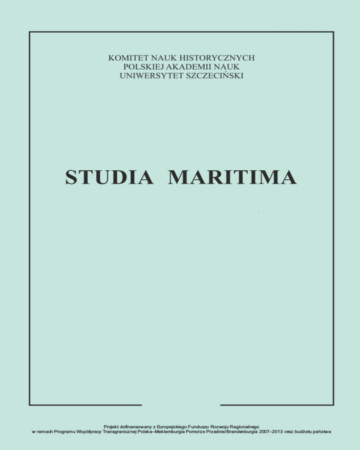






| Authors: |
Wojciech
Iwańczak
Uniwersytet Jana Kochanowskiego w Kielcach. |
| Keywords: | knighthood sword war justice |
| Data publikacji całości: | 2016 |
| Page range: | 18 (63-80) |
| 1. | Ambrosius S., De Officiis ministrorum, red. J.G. Krabinger, Tubingae 1857. |
| 2. | Bueil J. de, Le jouvencel, t. I, Paris 1887 (przedruk Gèneve 1996). |
| 3. | Clausewitz C. von, O naturze wojny, Warszawa 2011. |
| 4. | Latini B., Skarbiec wiedzy, red. M. Frankowska-Terlecka, T. Giermak-Zielińska, Warszawa 1992. |
| 5. | John of Legnano, Tractatus de bello de represaliis et de duello, red. E. Holland, Buffalo 1995. |
| 6. | Mistrz Wincenty (tzw. Kadłubek ), Kronika Polska, red. B. Kürbis, Wrocław–Warszawa–Kraków 1992. |
| 7. | Pieśń o Rolandzie, tłum. T. Żeleński (Boy), oprac. A. Drzewicka, Wrocław–Warszawa–Kraków 1991. |
| 8. | Rola wojen i konfliktów w kształtowaniu ładu europejskiego w średniowieczu 77 |
| 9. | Stanisław ze Skarbimierza, Mowy wybrane o mądrości, red. M. Korolko, Kraków 1997. |
| 10. | Tomasz z Akwinu, Summa teologiczna, t. XVI, tłum. A. Głażewski, London 1967. |
| 11. | A scuola con ser Brunetto. Indagini sulla ricezione di Brunetto Latini dal Medioevo al Rinascimento. Atti del convegno internazionale di studi, Università di Basilea, 8–10 giugno 2006, red. I. Maffia Scariati, Firenze 2008. |
| 12. | Almand Ch., Entre honneur et bien commun: le témoignage du Jouvencel au XVe siècle, „Revue Historique” 1999, t. 123. |
| 13. | Au champ des escriptures. IIIe Colloque international sur Cristine de Pisan, Lausanne, 18–22 juillet 1998, red. E. Hicks, D. Gonzalez, Ph. Simon, Paris 2000. |
| 14. | Autrand F., Christine de Pizan, Paris 2009. |
| 15. | Baszkiewicz J., Myśl polityczna w wiekach średnich, Warszawa 1970. |
| 16. | Battaglia F., Marsilio da Padova e la filosofia del Medio Evo, Milano 1987. |
| 17. | Battocchio R., Ecclesiologia e politica in Marsilio da Padova, Padova 2005. |
| 18. | Berges W., Die Fürstenspiegel des hohen und späten Mittelalters, Leipzig 1938. |
| 19. | Bisson L., Brunetto Latini as a failed mentor, „Mediaevalia et Humanistica” 1992, t. 18. |
| 20. | Bloch M., Społeczeństwo feudalne, Warszawa 1981. |
| 21. | Bolgar R.R., Hero or Anti-Hero? The Genezis and Development of the Miles Christianus, w: Concepts of the hero in the Middle Ages and the renaissance, red. N.T. Burns, |
| 22. | C.J. Reagan, New York 1975. |
| 23. | Bolton Holloway J., Twice-Told Tales: Brunetto Latini and Dante Alighieri, Bern–New York 1993. |
| 24. | Briguglia G., Marsilio da Padova, Roma 2013. |
| 25. | Buchheit V., „Militia Christi” und Triumph des Märtyrers, w: Kontinuität und Wandel. Lateinische Poesie von Naevius bis Baudelaire. Franco Munari zum 65. Geburtstag, red. U.J. Stache, W. Maaz, F. Wagner, Hildesheim 1986. |
| 26. | Cannon Willard Ch., Christine de Pizan: Her Life and Works, New York 1984. |
| 27. | Cavallara C., La pace nella filosofia politica di Marsilio da Padova, Ferrara 1973. |
| 28. | Contamine Ph., Wojna w średniowieczu, Warszawa 1999. |
| 29. | Contamine Ph., Une expérience romancée et personnelle de la guerre au XVe siècle: Le “Jouvencel” de Jean de Bueil, w: Krieg im Mittelalter und Renaissance, red. |
| 30. | H. Hecker, Düsseldorf 2005. |
| 31. | Curtius E.R., Literatura europejska i łacińskie średniowiecze, Kraków 1997. |
| 32. | Damiata M., Plenitudo potestas e universitas civium in Marsilio da Padova, Firenze 1983. |
| 33. | Davis Ch., Brunetto Latini and Dante, „Studi Medievali” 1967, t. 2. |
| 34. | Dolcini C., Introduzione a Marsilio da Padova, Bari 1995. |
| 35. | Duby G., Bitwa pod Bouvines, niedziela 27 lipca 1214, Warszawa 1988. |
| 36. | Eberle P.J., Mirror of princes, w: Dictionary of the Middle Ages, t. 13, New York 1987. |
| 37. | Ehrlich L., Polski wykład prawa wojny XV wieku, Warszawa 1955. |
| 38. | Falck R., Haines J., Bertran de Born, w: The Oxford Companion to Music, red. A. Latham, London 2002. |
| 39. | Fleckenstein J., Die Rechtfertigung der geistlichen Ritterorden nach der Schrift “De laudae novae militiae” Bernhards von Clairvaux, w: Die geistlichen Ritterorden Europas, |
| 40. | red. J. Fleckenstein, M. Hellmann, Sigmaringen 1980 (Vorträge und Forschungen, t. 26). |
| 41. | Fleckenstein J., Rittertum und ritterliche Welt, Berlin 2002. |
| 42. | Giannazza E., D’Ilario G., Vita e opere di Giovanni da Legnano, Legnano 1983. |
| 43. | Green K., Mews C., Healing the Body Politics: The Political Thought of Christine de Pizan, Turnhout 2005. |
| 44. | Hadot P., Fürstenspiegel, w: Reallexicon für Antike und Christentum, t. VIII, Stuttgart 1972. |
| 45. | Harnack A., Militia Christi. Die christliche Religion und der Soldatenstand in den ersten drei Jahrhunderten, Tübingen 1905. |
| 46. | Heuser B., Czytając Clausewitza, Warszawa 2008. |
| 47. | Hochberger W., Adel, Ministerialität und Rittertum im Mittelalter, München 2004. |
| 48. | Huizinga J., Jesień średniowiecza, t. I, Warszawa 1967. |
| 49. | Iwańczak W., Wizja monarchy – rycerza idealnego w kulturze czeskiej okresu przedhusuckiego, „Sobótka” 1982, t. 38, z. 1. |
| 50. | Iwańczak W., Chłopi w średniowiecznym wojsku czeskim, w: Kościół. Kultura. Społeczeństwo. Studia z dziejów średniowiecza i czasów nowożytnych, Warszawa 2000. |
| 51. | Iwańczak W., Miles Christi. Uwagi o religijnych aspektach etosu rycerskiego, w: Przestrzeń religijna Europy Środkowo-Wschodniej w średniowieczu, Warszawa 2010. |
| 52. | Kahl H.D., Die Kreuzzugseschatologie Bernhards von Clairvaux und ihre missionsgeschichtliche Auswirkung, w: Bernhard von Claivaux und der Beginn der Moderne, |
| 53. | red. D.R. Bauer, G. Fuchs, Innsbruck–Wien 1996. |
| 54. | Kay R., The sin (s) of Brunetto Latini, „Dante Studies” 1994, t. 112. |
| 55. | Kemp J.U., Dienst und Verdienst. Die Ministerialen Friedrich Barbarossas und Heinrich VI, Stuttgart 2002. |
| 56. | Krynen J., Idéal du prince et pouvoir royal en France à la fin du Moyen Âge (1380–1440). Étude de la littérature politique du temps, Paris 1981. |
| 57. | Kümper H., Sachsenrecht. Studien zur Geschichte des sächsischen Landrechts in Mittelalter und früher Neuzeit, Berlin 2009. |
| 58. | Kusiak F., Rycerze średniowiecznej Europy łacińskiej, Warszawa 2002. |
| 59. | Lieberwirth R., Eike von Repgow und der Sachsenspiegel, Berlin 1982. |
| 60. | Lück H., Über den Sachsenspiegal. Entstehung, Inhalt und Wirkung des Rechtsbuches, II. wyd. Dössel 2005. |
| 61. | McCall J.P., Chaucer and John of Legnano, „Speculum” 1965, t. 40. |
| 62. | Maiolo F., Medieval Sovereignty, Bartolus of Saxoferrato and Marsilius of Padua, Delft 2007. |
| 63. | Medeiros M.-Th. de, Défence et illustration de la guerre, „Le Jouvencel de Jean de Bueil, |
| 64. | Cahiers de recherches médiévales” 1998, t. 5. |
| 65. | Merlo M., Marsilio da Padova: il pensiero della politica come grammatica del mutamento, Milano 2003. |
| 66. | Minois G., Kościół i wojna. Od czasów Biblii do ery atomowej, tłum. A. Szymanowski, Warszawa 1998. |
| 67. | Ożóg K., Ideał władcy w krakowskim środowisku intelektualnym na początku XV w., w: Nihil Superfluum Esse. Studia z dziejów średniowiecza ofiarowane profesor Jadwidze Krzyżaniakowej, red. J. Strzelczyk, J. Dobosz, Poznań 2000. |
| 68. | Paret P., Clausewitz in His Time: Essays in the Cultural and Intellectual History of Thinking about War, New York–Oxford 2015. |
| 69. | Pernoud R., Christine de Pisan, Paris 1982. |
| 70. | Roques P., Le général de Clausewitz. Sa vie et sa théorie de la guerre, Paris 2013. |
| 71. | Roux S., Christine de Pizan, Femme de tête, dame de coeur, Paris 2006 |
| 72. | Russel F.H., The Just War in the Middle Ages, Cambridge 2003. |
| 73. | Russocki S., Opór władcom i prawo oporu u Słowian w wiekach średnich, „Czasopismo Prawno-Historyczne” 1968, nr 1 (20). |
| 74. | Russocki S., Monarchia i stany w Europie środkowej XIV w. Zarys problematyki, „Sobótka” 1981, t. 26. |
| 75. | Russocki S., Struktury i świadomość. Procesy integracji rycerstwa Europy środkowej schyłku XIII w. i ich odbicie w historiografii epoki, w: Społeczeństwo Polski Średniowiecznej, red. S.K. Kuczyński, t. I, Warszawa 1981. |
| 76. | Russocki S., Średniowieczne narody polityczne środkowej Europy, „Czasopismo Prawno- Historyczne” 1985, t. 37. |
| 77. | Schroeder K.-, Vom Sachsenspiegel zum Grundgesetz, München 2001. |
| 78. | Seidler G., Myśl polityczna średniowiecza, Kraków 1961. |
| 79. | Singer B., Die Fürstenspiegel in Deutschland im Zeitalter des Humanismus und der Reformation, München 1981. |
| 80. | Smith B.H., On Clausewitz: A Study of Military and Political Ideas, New York 2005. |
| 81. | Strachan H., Carl von Clausewitz o wojnie: biografia, Warszawa 2009. |
| 82. | Strzelczyk J., Krystyna de Pizan o sztuce wojennej, w: Od najazdów pogańskich dotąd są państwa Waszej Królewskiej Mości spokojne... Studia ofiarowane w siedemdziesiątą rocznicę urodzin profesorowi Karolowi Olejnikowi, red. Z. Pilarczyk, M. Franz, Toruń 2008. |
| 83. | Szkilnik M., The Art of Compiling in Jean de Bueil’s „Jouvencel” (1461–1468), „Fifteenth- Century Studies” 2011, t. 36. |
| 84. | Šimůnek R., Reprezentace české středověké šlechty, Praha 2013. |
| 85. | Toscano A., Marsilio da Padova e Niccolo Machiavelli, Ravenna 1981. |
| 86. | Uhlíř Z., Pojem zemské obce v tzv. kronice Dalimilové jako zakladní prvek její ideologie, „Folia Historica Bohemica” 1985, t. 9. |
| 87. | Vaníček V., Spiritualizace étosu šlechty. Miles Christianus, militia Dei (K strukturální typologii raných elit), w: Světcí a jejích kult ve středověku, Praha 2006. |
| 88. | Wyszczelski L., Teorie wojenne i ich twórcy na przestrzeni dziejów, Warszawa 2009. |
| 89. | Zieliński A., Opat krzyżowców – Święty Bernard, Warszawa 2005. |